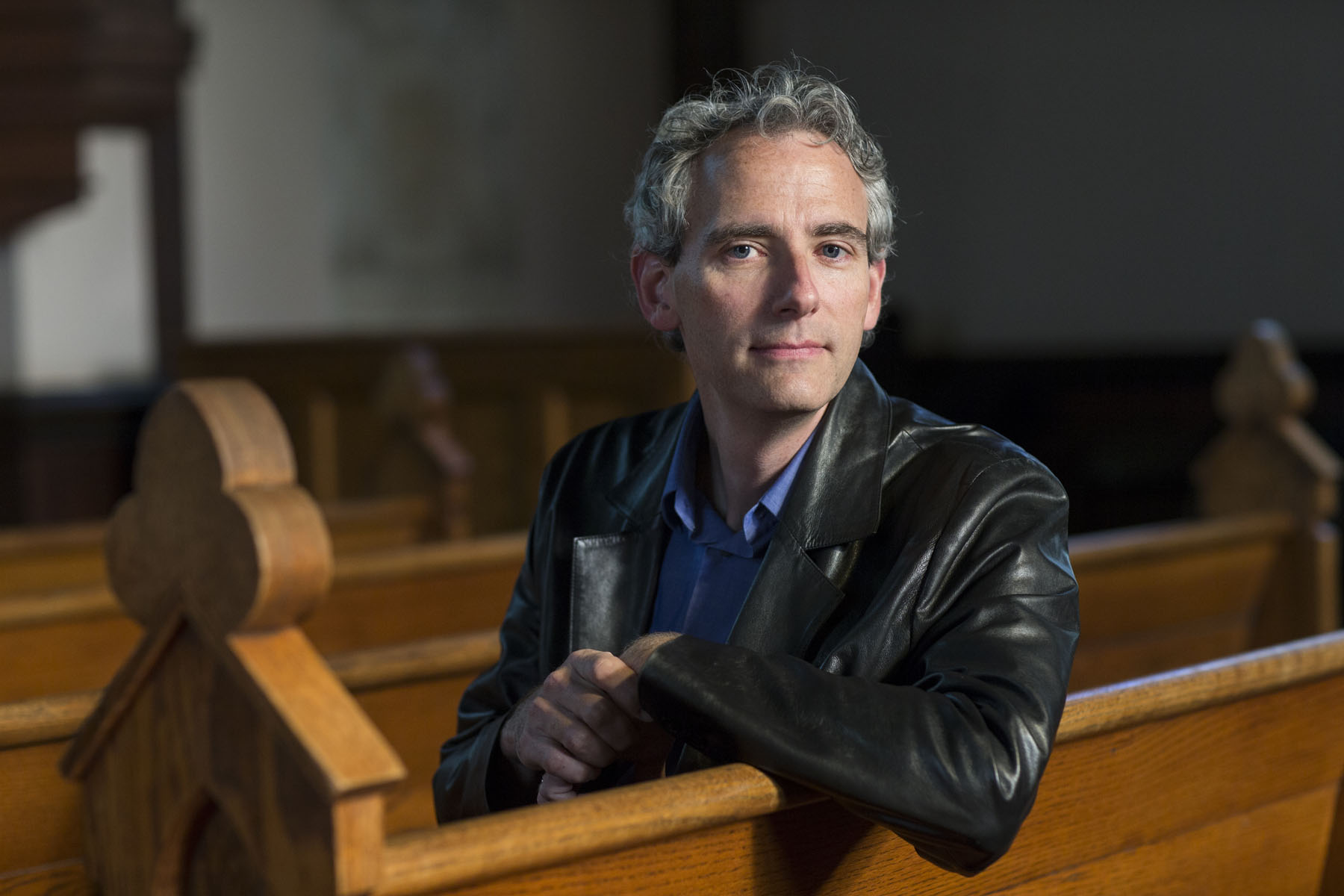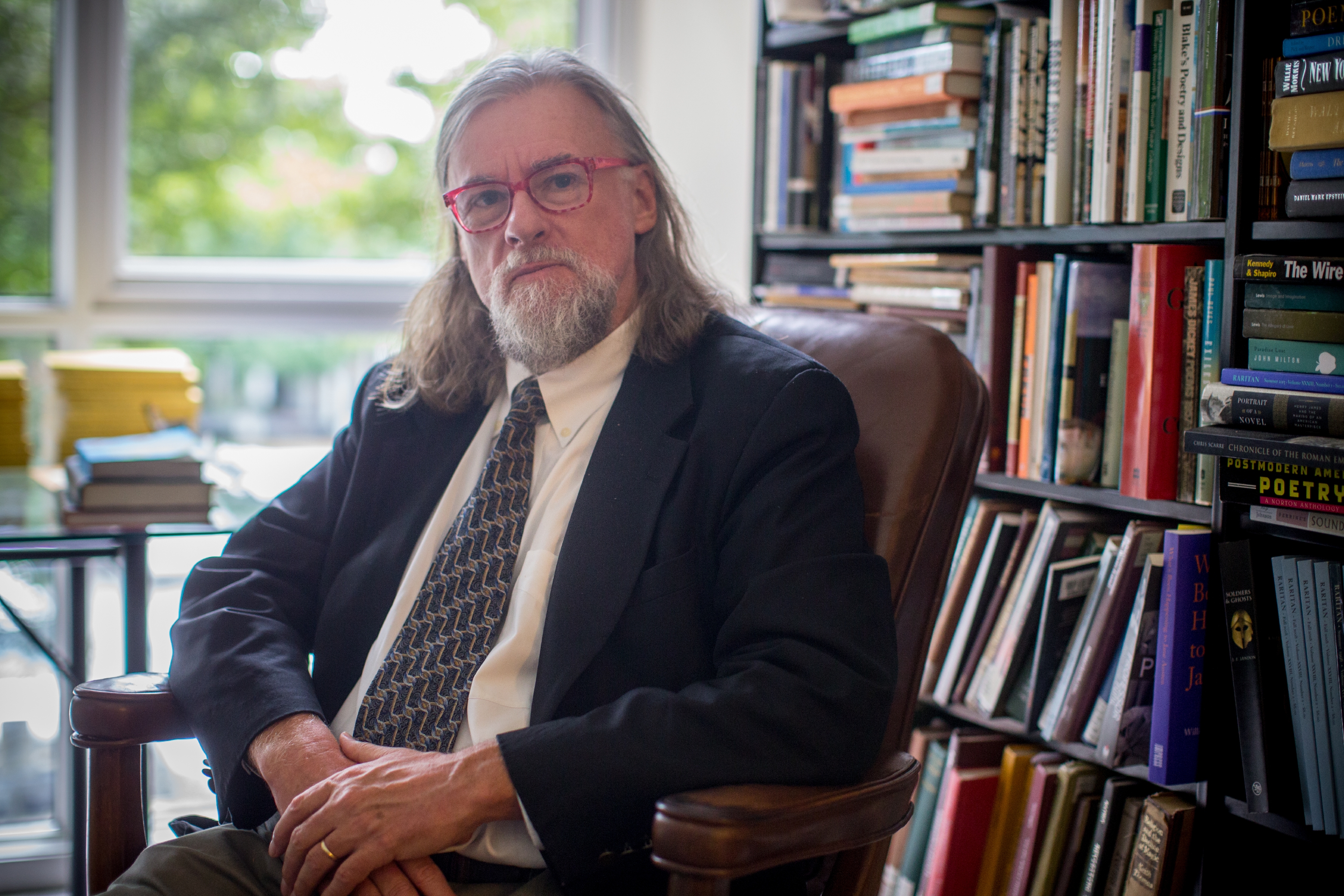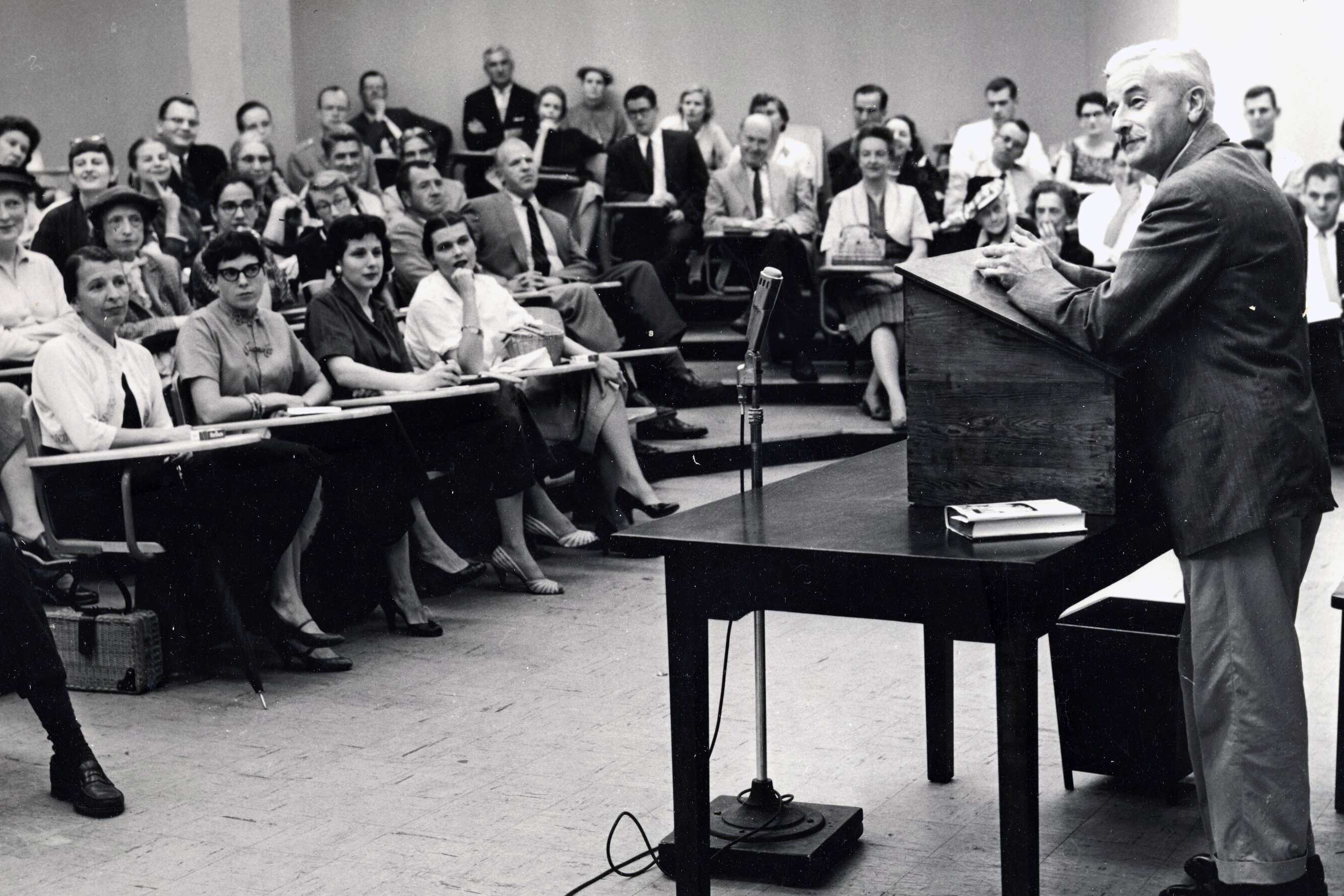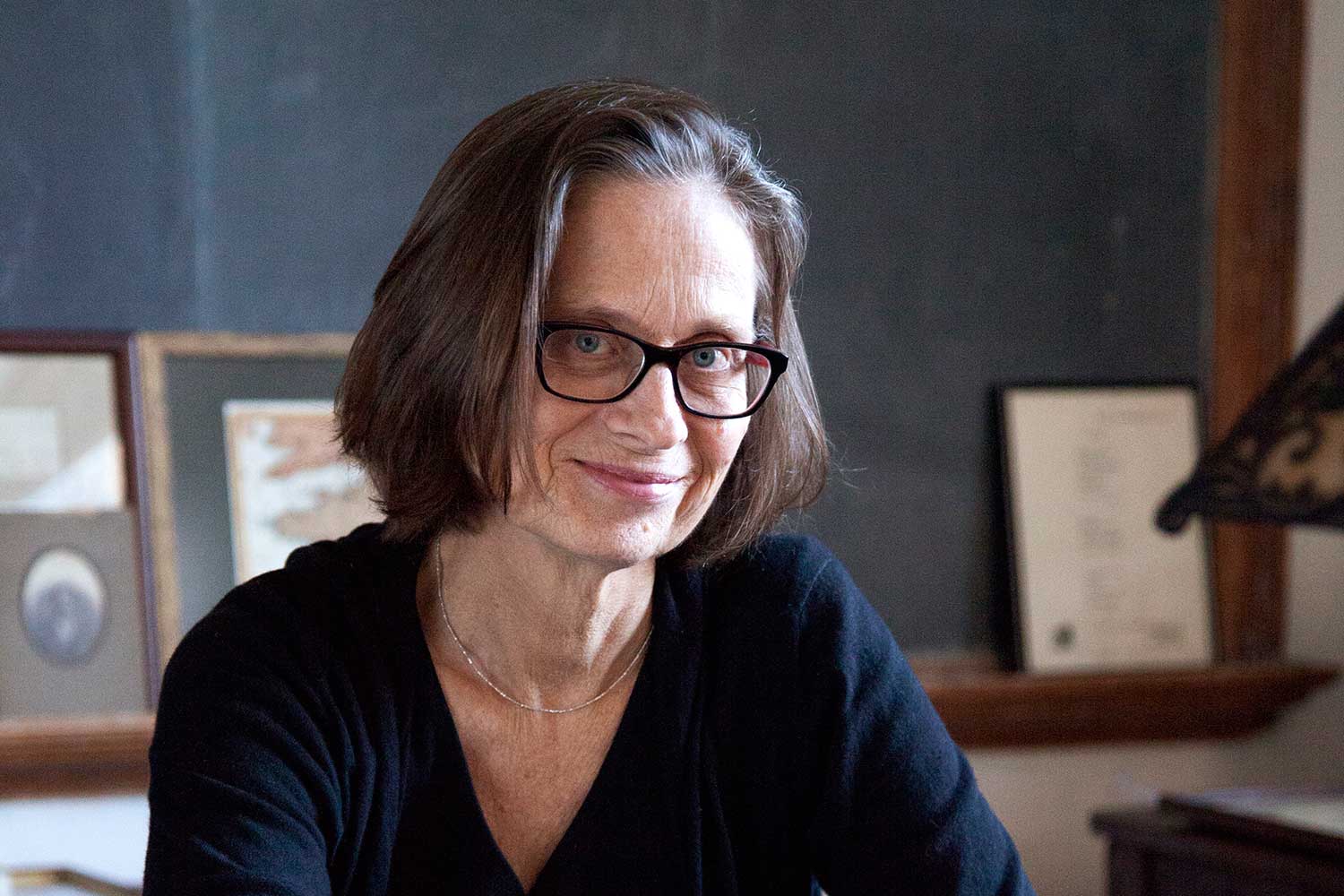There’s no shortage of writers around the University of Virginia, but who knows how many people have that notorious “novel in the drawer”?
Those who might be seeking pearls of wisdom about what it takes to become a good writer will have a rare chance of hearing some sage advice from an award-winning author this month.
Lydia Davis, a writer and translator revered in literary circles for her extremely brief and inventive short stories, will be on Grounds through Nov. 20 as the UVA Creative Writing Program’s third Kapnick Foundation Distinguished Writer-in-Residence and will dispense “Thirty Pieces of Advice for Writers” in a talk on Nov. 15 at 5 p.m. in the auditorium of the Albert and Shirley Small Special Collections Library.
Not to steal her thunder, UVA Today nudged one of those pieces from her in advance, and sought suggestions from a few other well-known UVA writers who’ve polished and published their prose, whether fiction or nonfiction.
One element that makes a story believable is authentic-sounding dialogue. Davis recommends eavesdropping with pen in hand: “Make a habit of copying down overheard conversation,” she suggests.
She’ll give a reading of her work Tuesday and another talk on translation on Nov. 17, both events also at 5 p.m. in the Small Special Collections auditorium. In addition, Davis is leading master classes and meeting with M.F.A. and undergraduate prose writers.
The Man Booker International Prize winner in 2013 and a MacArthur Foundation “genius” fellowship winner in 2003, Davis teaches at the State University of New York at Albany. Her collection, “Varieties of Disturbance: Stories,” was a finalist for the 2007 National Book Award. Published in 2009, “The Collected Stories of Lydia Davis” won the Paris Review’s Hadada Award. Her 2014 collection, “Can’t and Won’t,” was a national bestseller.
Junot Díaz, author of “The Brief Wondrous Life of Oscar Wao,” which won the 2008 Pulitzer Prize and the National Book Critics Circle Award, will follow Davis as the next Kapnick Distinguished Writer-in-Residence from Jan. 23 to Feb. 11.
As promised, a few more tidbits about writing from other successful writers around Grounds.
Bruce Holsinger: In This Case, It’s OK to Lie
Bruce Holsinger, professor of English, explores medieval literature and culture in his academic role, with scholarly titles such as “The Premodern Condition: Medievalism and the Making of Theory.”

Bruce Holsinger, a medieval scholar in the English department, began writing historical fiction several years ago. (Photo by Dan Addison, University Communications)
His debut novel, “A Burnable Book,” won the John Hurt Fisher Prize and was named a New York Times Book Review Editor’s Choice. His second novel, “The Invention of Fire,” was also well received and named an Amazon Book of the Month for April 2015.
Writing historical fiction demanded a new level of research and way of portraying the medieval world, he said.
“I write historical fiction, set in the very medieval world I study and teach for a living – yet one of the greatest challenges I faced when I began came in confronting my own continuing ignorance about the era,” he said. “Writing ‘A Burnable Book’ and ‘The Invention of Fire’ demanded an immersive, challenging and often joyous process of reeducation as I taught myself everything from the conventions of aristocratic household management to the mechanics of medieval street drainage to the technology of the earliest gunpowder weapons.
“One of your tasks as a historical novelist is to lie to your audience – and lie repeatedly and convincingly to those very readers who are so deeply invested in the accuracy and verifiability of your recreation of a particular moment in history. If you choose to write historical fiction, you will constantly be treading that fine line between the true and the plausible.”
Mark Edmundson: Slow Down and Dream
Professor of English Mark Edmundson has written more than 10 nonfiction books of essays on the humanities, teaching and memoir, from “Nightmare on Main Street” to “The Fine Wisdom and Perfect Teachings of the Kings of Rock and Roll.”

Mark Edmundson has published nonfiction books from “Why Write?” to “Nightmare on Main Street.” (Photo by Sanjay Suchak, University Communications)
In his latest, “Why Write?,” he gets right down to the physical activity and recommends establishing a ritual or routine that helps you get going.
He also says that writers face a metaphorical wall they must traverse – over or under – every time they sit down to write. Those who vault over the wall “attempt to speed themselves up. They rev themselves internally until their minds are whirling at a higher velocity than they habitually do and with the strength that speed brings, they leap the barrier and they begin to write.”
He, on the other hand, thinks the best writing comes from “slowing it down and making contact with a dreamier, more associative part of the mind that – if you connect with it just right – will in certain ways do your writing for you. … A lot of trial and error can be involved. But it is trial and error of an interesting, I might even say revelatory, sort. There’s something to be learned about yourself as you find what mode of shifting consciousness works for you.”
And finally, he says 19th-century Romantic writers and other devotees swear by its inspiration: falling in love.
William Faulkner: Are You ‘Demon-Driven’?
The Kapnick Foundation Distinguished Writer-in-Residence Endowment was inspired by UVA’s first writer-in-residence, William Faulkner, who came to the Grounds to consult and lecture for the spring semesters of 1957 and 1958.

William Faulkner served as UVA’s first writer-in-residence in 1957 and 1958. (Photo courtesy of Albert and Shirley Small Special Collections Library)
In one class, Faulkner had these blunt words for prospective writers with excuses:
“I have no patience, I don’t hold with the mute inglorious Miltons. I think if he’s demon-driven with something to be said, then he’s going to write it. He can blame the fact that he’s not turning out work on lots of things. I’ve heard people say, ‘Well, if I were not married and had children, I would be a writer.’ I’ve heard people say, ‘If I could just stop doing this, I would be a writer.’ I don’t believe that. I think if you’re going to write you’re going to write, and nothing will stop you.”
Media Contact
Article Information
October 31, 2016
/content/so-you-think-you-want-be-writer-four-authors-offer-advice

